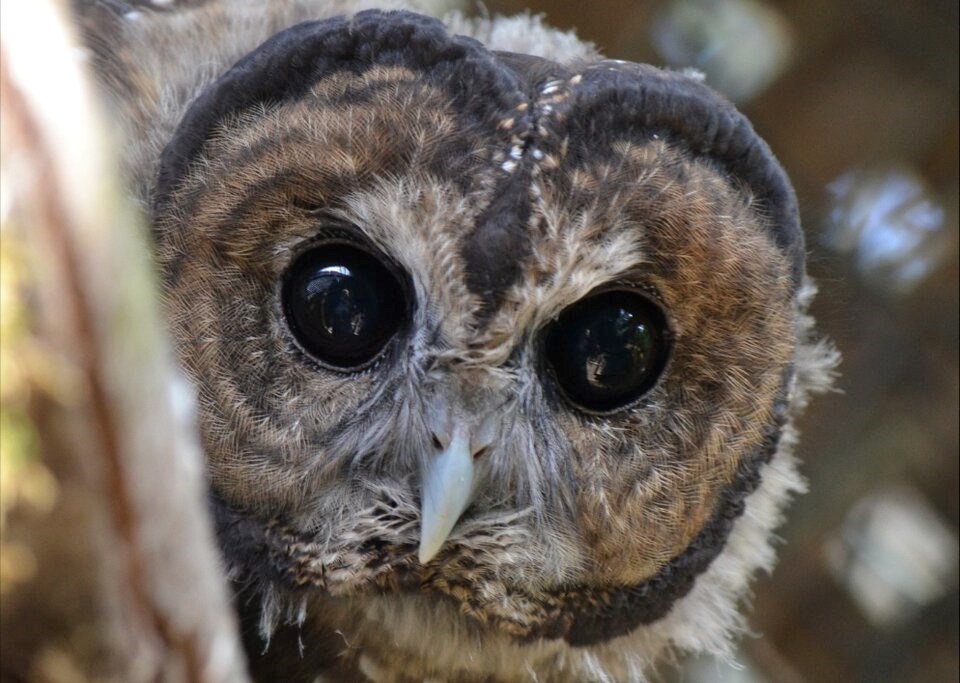Canada’s environment minister should be able to delay a recommendation for an emergency order to protect critically endangered species — a necessary step so he can consult provinces and First Nations and analyze how protecting habitat would impact society and the economy, government lawyers told a Vancouver federal court Thursday.
In its second day, the judicial review pits the Western Canada Wilderness Committee against Environment and Climate Change Canada. The court challenge comes after Environment Minister Steven Guilbeault took eight months to issue an emergency order threatening the last wild-born spotted owl in the country — Canada’s most endangered bird.
About 40 centimetres tall with dark plumage, dark eyes and no ear tufts, the northern spotted owl ranges from southern B.C. through Washington, Oregon and into northern California. A subspecies of the spotted owl, it was listed as endangered under Canada’s Species at Risk Act (SARA) in 2008.
Fallout from the case, would likely set a precedent for how fast the federal government must move to protect critically endangered species at risk across Canada.
Aileen Jones, lawyer for Environment and Climate Change Canada, challenged the idea that SARA requires the minister to recommend an emergency order based solely on a scientific opinion. Instead, she argued the minister must be able to consult other governments and carry out a socio-economic impact assessment so cabinet can make an informed final decision.
“That’s the only reasonable interpretation of that statute. Because it’s the only way the cabinet can act,” Jones told the court.
The case stems from January, when Guilbeault said he would be issuing an emergency order to protect 2,500 hectares of spotted owl habitat in B.C.’s Fraser Canyon.
At one point, the presence of the species in B.C. is thought to have totalled up to 500 breeding pairs. Those numbers have plummeted in recent years, prompting a recovery effort backed by a breeding centre in Langley, B.C. Some experts say the owl’s recovery is possible with human intervention, but those efforts have faced challenges. Two owls released in 2022 were later found dead (another two were released in September 2023).
In January 2023, Guilbeault approved a scientific threat assessment that said an emergency order protecting the old-growth habitat was necessary because ongoing logging operations posed an imminent threat to the species. If old-growth harvesting was to continue in 2,500 hectares of critical habitat through 2023, it would make the owl's survival and recovery “highly unlikely,” the assessment found.
Guilbeault, however, did not call on cabinet to issue an emergency order until September, eight months later. By the time he submitted the recommendation, hundreds of hectares of forests in the owl’s habitat had been approved for logging, according to the Wilderness Committee.
On Wednesday, Wilderness Committee lawyer Kegan Pepper-Smith argued that the eight-month wait was the latest in a series of government delays — part of a “talk and log approach” that has failed to protect the owl.
Pepper-Smith said the minister and his science team was specific down to the last hectare how much old growth should be protected — evidence, he said, that there was no justification that the minister should have waited eight months to recommend an emergency order to cabinet.
Federal Justice Yvan Roy challenged government lawyers Thursday over their interpretation of SARA, repeatedly stating that how cabinet chooses to make decisions shouldn’t override the minister’s legal obligation.
“By definition, it’s urgent. It’s called an emergency order,” questioned the justice at one point, later adding, “Where is the urgency?”
In one exchange with the government lawyer, Roy summed up the position of the Wilderness Committee: “You cannot extend the ticking of the clock by saying I have to do some other things.”
“I have some sympathy for that position.”
Roy is expected to render a judgment in the case by the spring of 2024.



